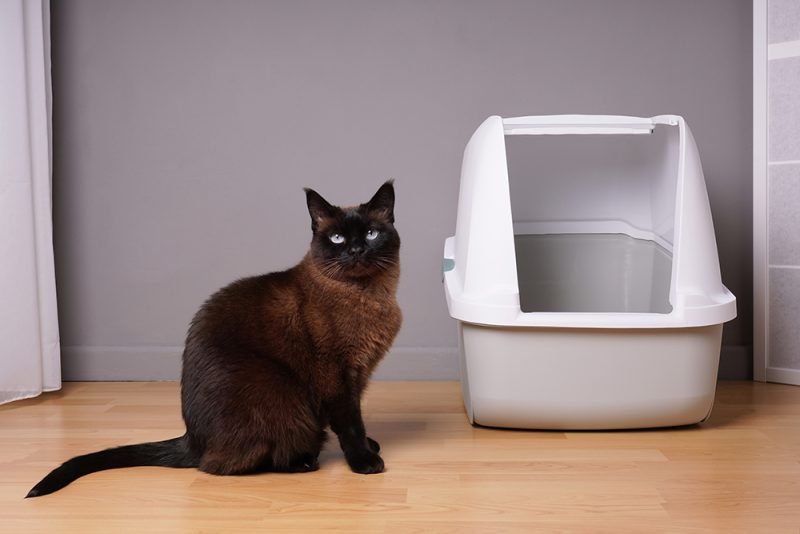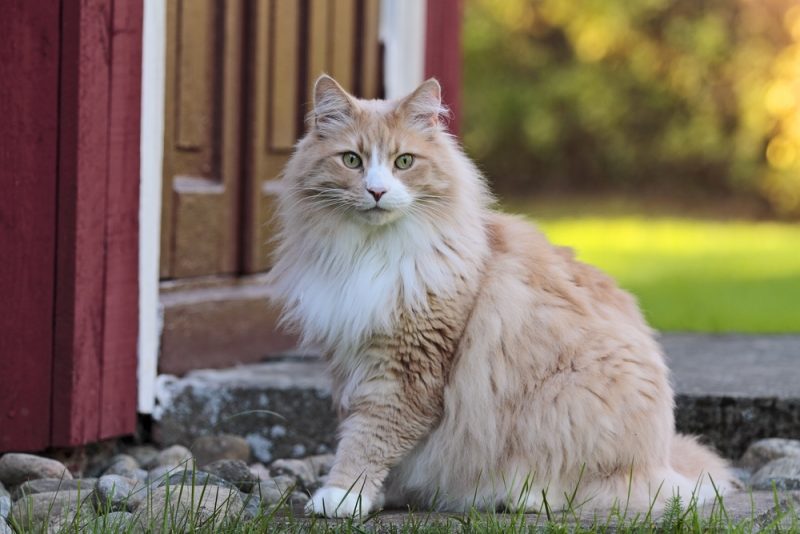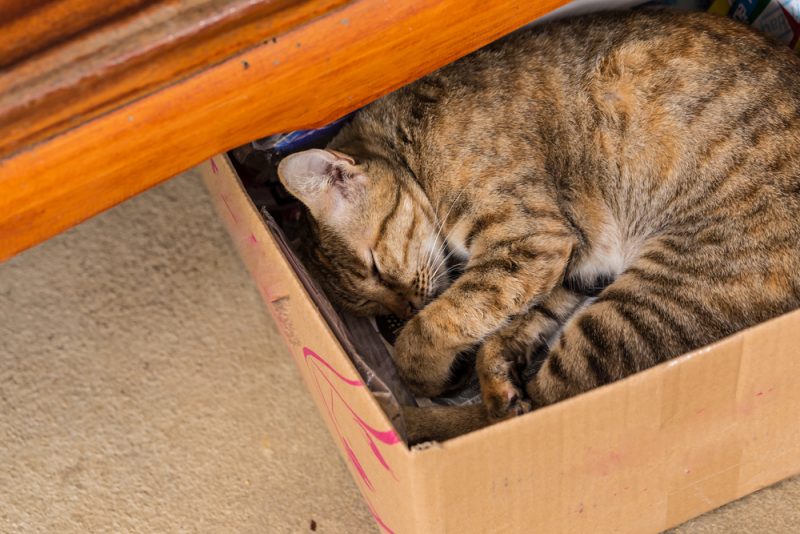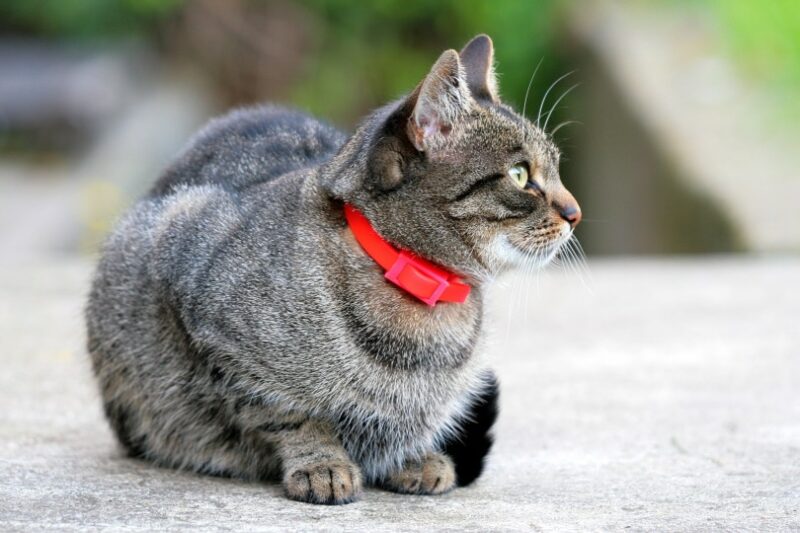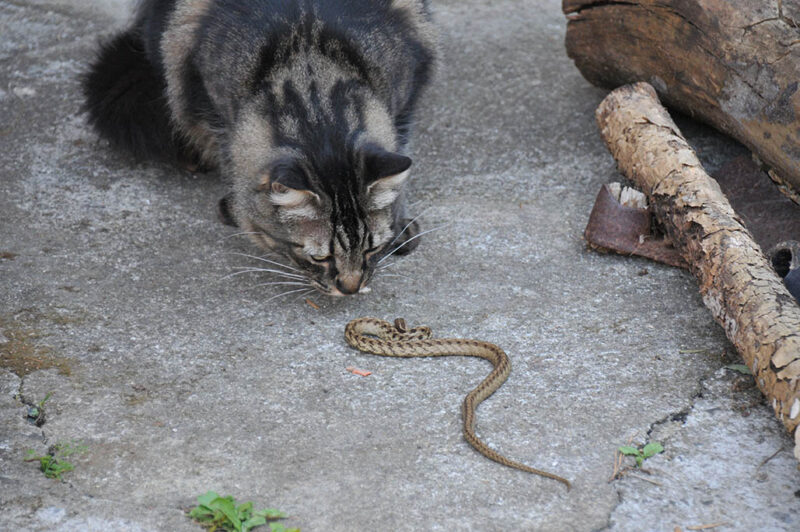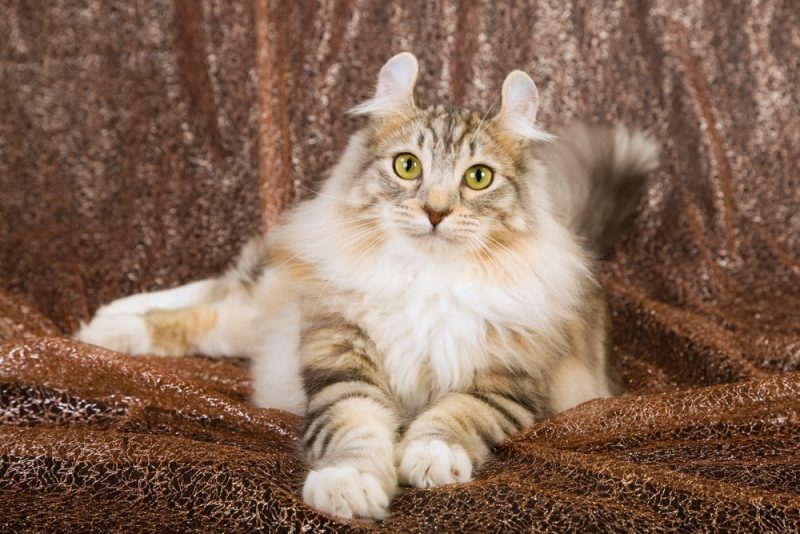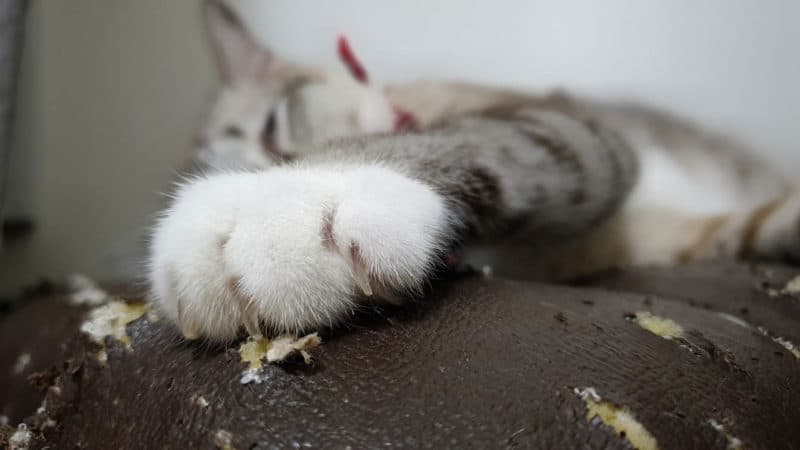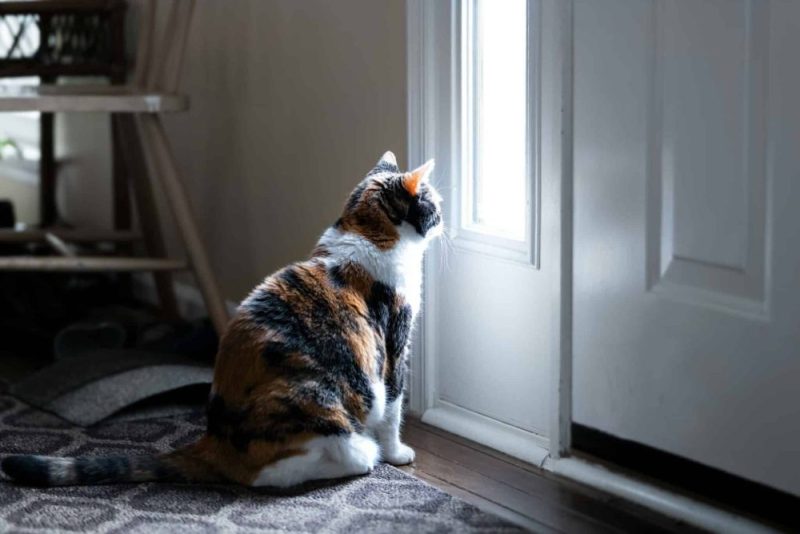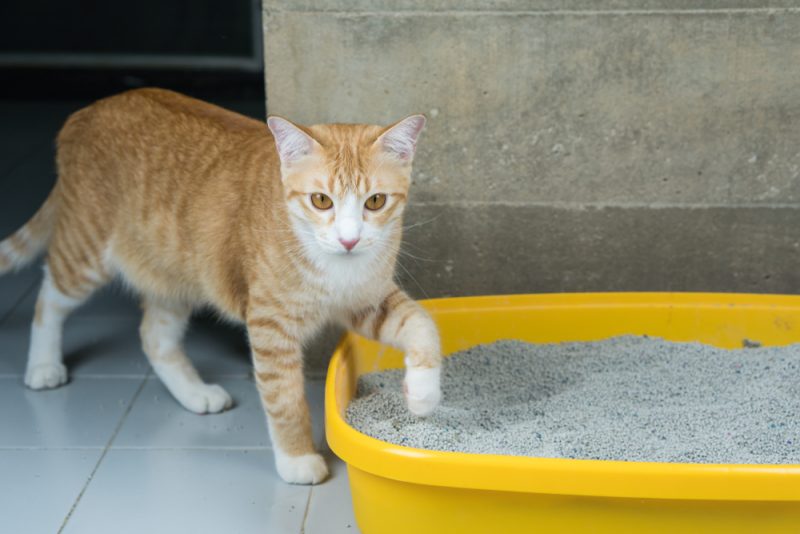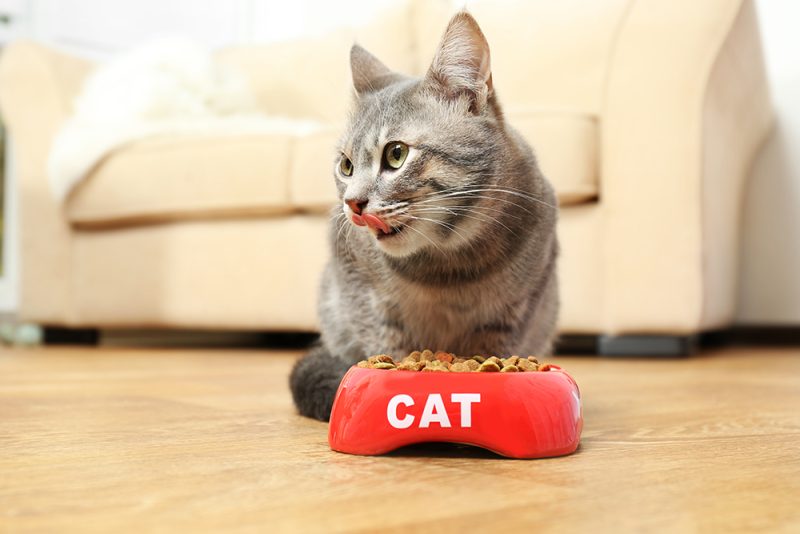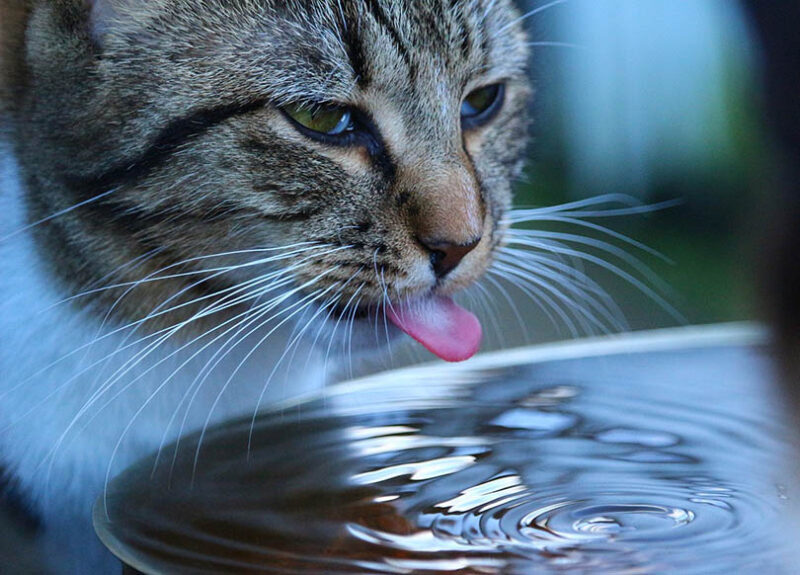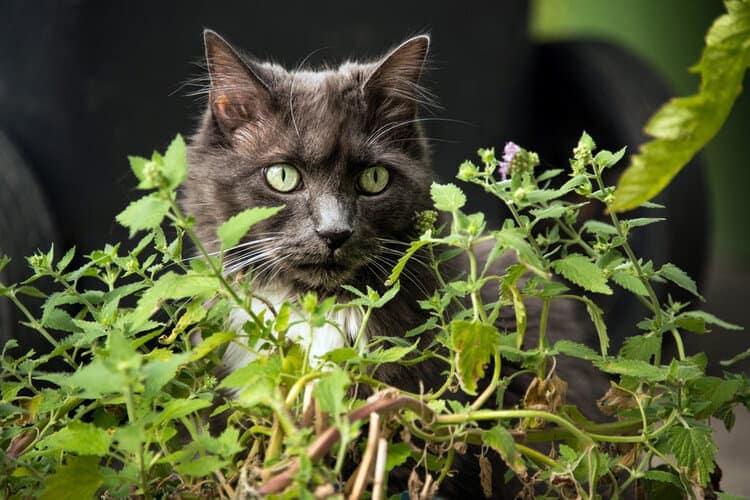Dr. Meghan Herron, professor of veterinary behavioral medicine at the Ohio State University College of Veterinary Medicine (DACVB), says there are three common offenses cats would post on a blog site if they could:

The 6 Cat Litter Box Mistakes To Avoid
1. The litter box or litter boxes are too small
“Cats want to sniff around and investigate, then turn around, then dig and cover what they did in the box,” Dr. Herron says. “This is a hardwired behavior among most cats. Even for your average cat, the average-sized box just isn’t large enough.” Dr. Herron and most of her colleagues believe that the larger the box, the better.
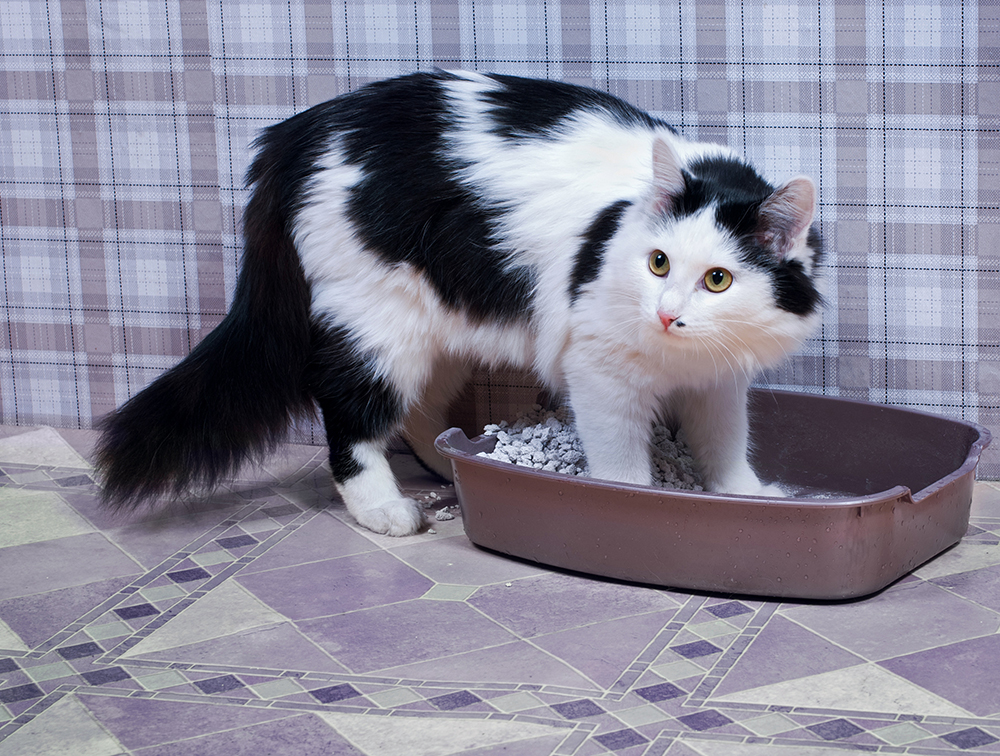
2. The litter box or litter boxes are too dirty
“Boxes should be scooped daily — even more often if several cats are sharing a box and still more often if at least one of those cats typically has a messy (loose) stool,” Dr. Herron says. Make full litter replacement as recommended, depending on the kind of litter you use it could be anything from once a week to once a month. Take advantage of this time to wash the box.
3. The litter box or litter boxes are too hard to get to
Veterinary behaviorist and chief investigator of many cat studies Dr. Theresa DePorter (DACVB) of Oakland Veterinary Referral Services in Michigan, explains that the law for cat boxes is to have one plus one more box for each cat in the house. So, if you have three cats, that means four boxes. If you have six cats that means seven boxes. And, at least keep a box (or more than one box) on each level of the house. Keep in mind that three boxes close together in one room, from the cat’s perspective, is like one giant box.
Dr. Herron notes that most cats prefer privacy to do their business. Who can blame them? Still, too far away from the family is inconvenient. Near windows where loud noises occur or equipment like furnaces that blast with an unpredictable loud sound can startle cats. When startled in the box, some cats may instantly have an aversion to that location and even that box.
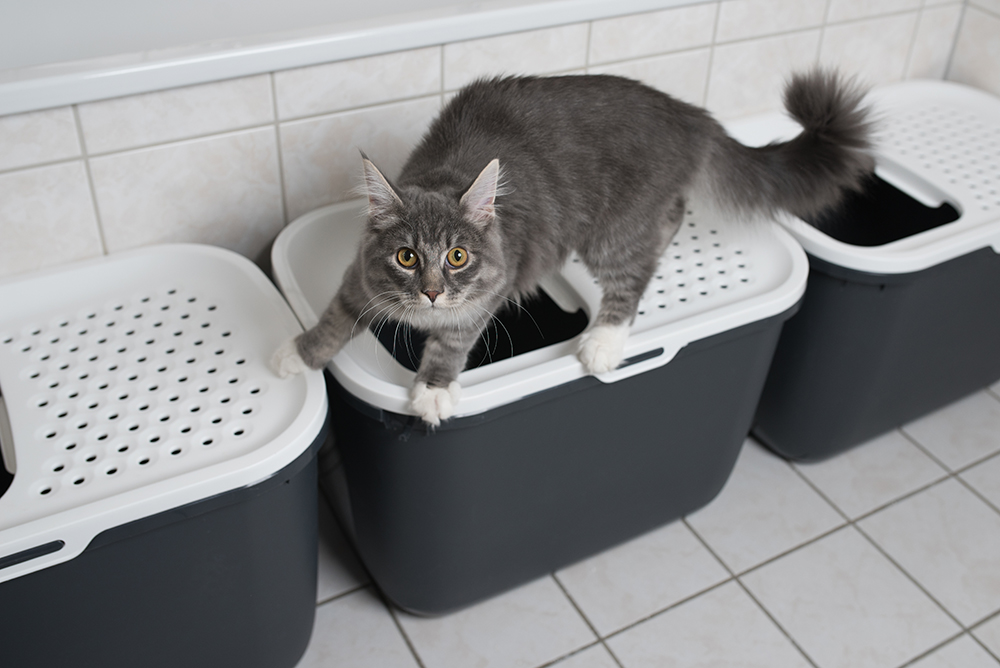
4. Peeing or pooping outside of the litter box isn’t revenge
Cats never have accidents out of spite. “Think about it. A cat deciding to inflict punishing people by urinating or defecating makes no sense,” Dr. DePorter says. So what’s going on? Dr. Herron, who is co-editor of a book authored by many of her veterinary behaviorist colleagues, called Decoding Your Cat says that when she was in private practice half the clients presenting with litter box issues actually resolved with medical treatment. Whenever there is a change in a cat’s behavior — consider asking “why now?” The answer might be medical. In any case, the cat is never being vindictive but instead is only attempting to cope.
If you are concerned about the health and well-being of your pet, seek veterinary advice for the best course of action.
If you need to speak with a vet but can't get to one, head over to PangoVet. It's an online service where you can talk to a vet online and get the advice you need for your pet — all at an affordable price!

5. Make sure you’re using the right litter and litter boxes
For kittens under about 9 weeks, Dr. DePorter says easy-to-get-into, very small boxes are best. This less challenging scenario makes it easier for kittens to learn to use the box. Once they reach a few months old, they become circus performers — so getting into the box is no issue. And at that point, a larger box to grow into makes perfect sense. Dr. DePorter says that if you do have the opportunity to offer young kittens various litters, early positive exposure is likely a good idea, and they may accept that variation throughout life. When cats have an aversion to litter, Dr. DePorter says considering the general type of litter they were likely exposed to as a kitten may be helpful. For example, barn cats in all likelihood grew up using sand or dirt, and shelter kitties clay or clumping litters. Dr. Herron says do consider that most senior cats have some degree of arthritis going on, whether or not you see any indications.
What’s more, some illnesses, such as diabetes, GI issues, and kidney disease, can induce cats to urinate and/or defecate more often. Medications may create the urge to go more frequently, too. A golden rule for cats in their golden years may mean more litter boxes in more places — and for sure boxes that offer lots and lots of elbow room. “Understand the threshold for tolerating a situation the cat never liked may also change with age,” Dr. Herron notes. For example, a geriatric cat who tolerated a certain type of litter he never really liked for 14 years on his 15th birthday may decide not to.
6. Different approaches work for different cats
Here’s what you can say for sure about litter boxes and cats. There are absolute rules that experts, such as veterinary behaviorists, have researched. However, for every rule, there are some cats that feel such rules don’t apply to them. If whatever you are doing works for your cats — go with it. But understand your cats may possibly be tolerating and adjusting.

Helpful Rules of Thumb for Litter Boxes
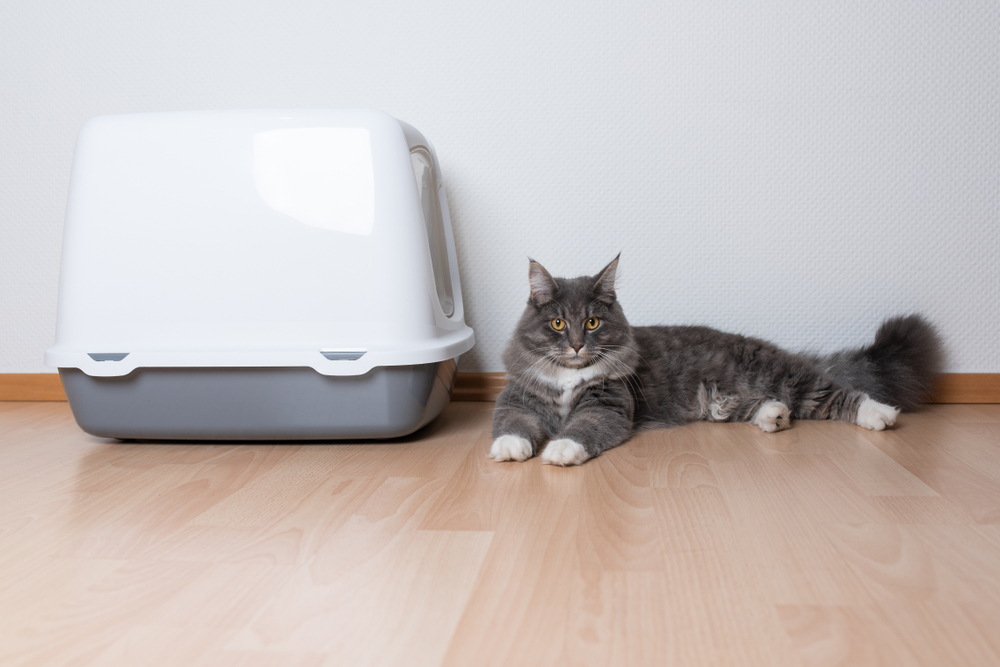
- Most cats prefer fine, unscented clumping litter. Still, all cats are individuals and have their own preferences, which may be based on early exposure or just individual proclivity.
- Some cats prefer covered litter boxes, as they presumably offer privacy and a feeling of safety. Having said that, many cats don’t care, and most prefer uncovered boxes.
- In multi-cat environments, products like Feliway MultiCat calming pheromone diffuser can lower anxiety around the box.
- Don’t drown the cat in 6 inches of litter or be too stingy with less than a quarter of an inch. On average, use about 3 inches.
- Litter boxes should not be too close in proximity to food or water.
- If the cat jumps in the box, does his business and instantly jumps out: He’s usually indicating he’s tolerating the situation but doesn’t like the litter and/or the box isn’t clean enough.

The Right Way to Clean a Litter Box
Dr. Theresa DePorter likes hot water, perhaps with gentle dish soap, to clean the box. In part, this is because cats’ sense of smell is so much more advanced than our own, and in part because of what might smell great to us can be offensive to many cats.
She says NOT to use:
- vinegar
- household cleaners
- citrus wipe
Read more about litter boxes and litter:
- Tips for Controlling Cat Litter Tracking and Scattering
- Ways to Get Your Cat to Like Using the Litter Box
Featured Image Credit: Axel Bueckert, Shutterstock
